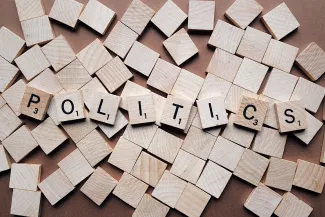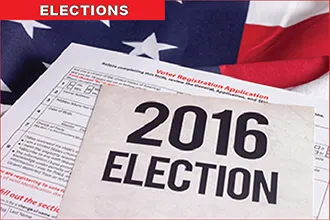
New Mexico political expert says 'polarization' is the logical 'word of the year'
© wildpixel - iStock-1393613016
Click play to listen to this article.
Between endless doomscrolling and nonstop negative headlines, a New Mexico political science professor said it's no surprise the Merriam-Webster dictionary anointed "polarization" the word of the year.
Jessica Feezell - an associate professor in the Department of Political Science at the University of New Mexico - said she believes polarization should actually be the word of the past 40 or 50 years, because she said politicians and some media outlets have encouraged the division for at least that long.

In 2024, she said both Democrats and Republicans were tending toward extremes rather than the center.
"The parties have really exploited the American public in this way to their advantage," said Feezell. "People tend to vote out of fear and hatred more than they do out of support and joy, and I think the American public is tiring of this level of hostility."
Feezell said she believes polarization has become more common in the U.S. because people don't interact with others that are cross-partisans as frequently - and when online, seek networks of like-minded people.
She noted that media companies compete for peoples' attention with snappy, negative headlines that often are more pessimistic and alarming than the actual story.
"Research shows that actually most people don't read full articles," said Feezell. "They just scroll headlines. And people tend to believe information that is consistent with their pre-dispositions. So, headlines that are partisan and negative are very easy to sort of accept or reject."
Feezell said many companies benefit financially when Americans are angry at each other.
"If people put their attention on articles that are not inflammatory," said Feezell, "then the media would respond and write that kind of content."
Running second to polarization, Merriam-Webster's said other words that stood out in its 2024 online searches were totality, resonate, pander, and weird.
Support for this reporting was provided by the Carnegie Corporation of New York.
















